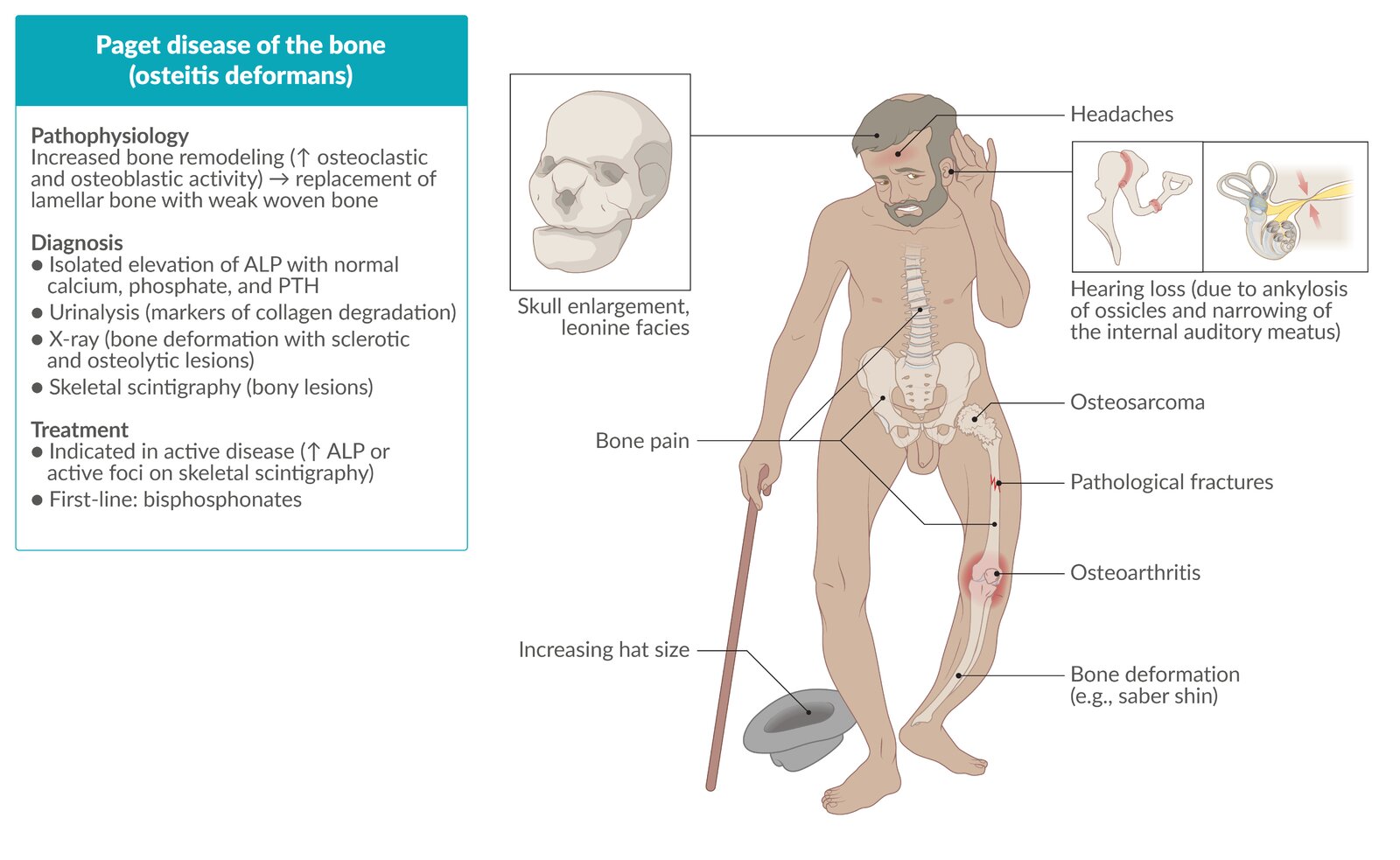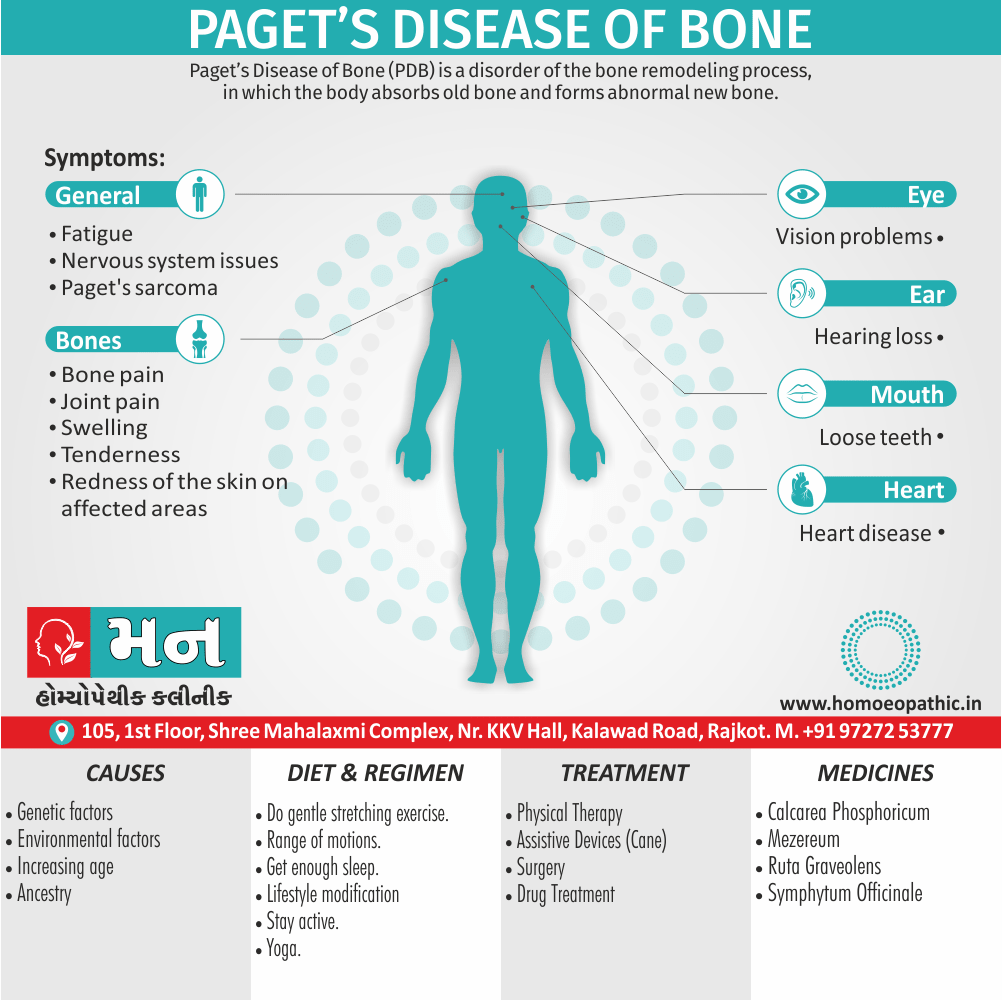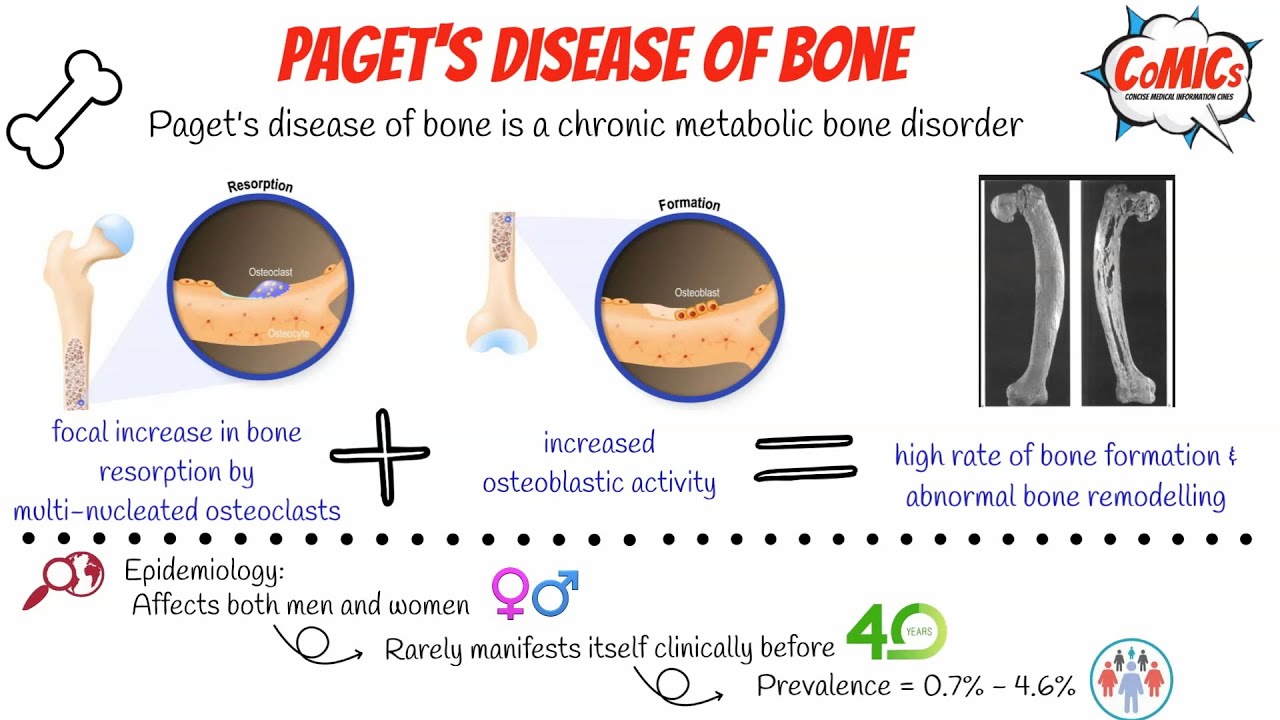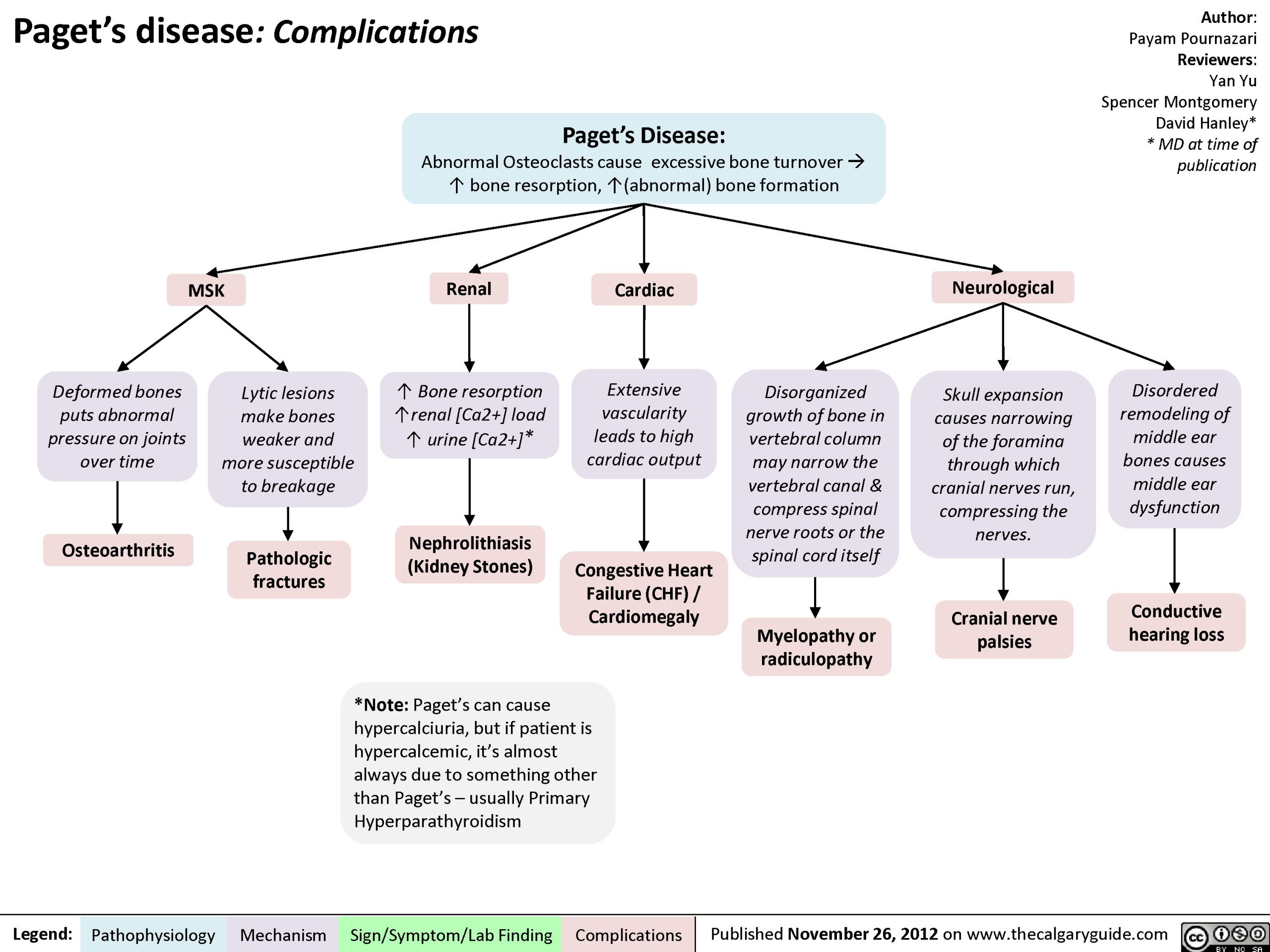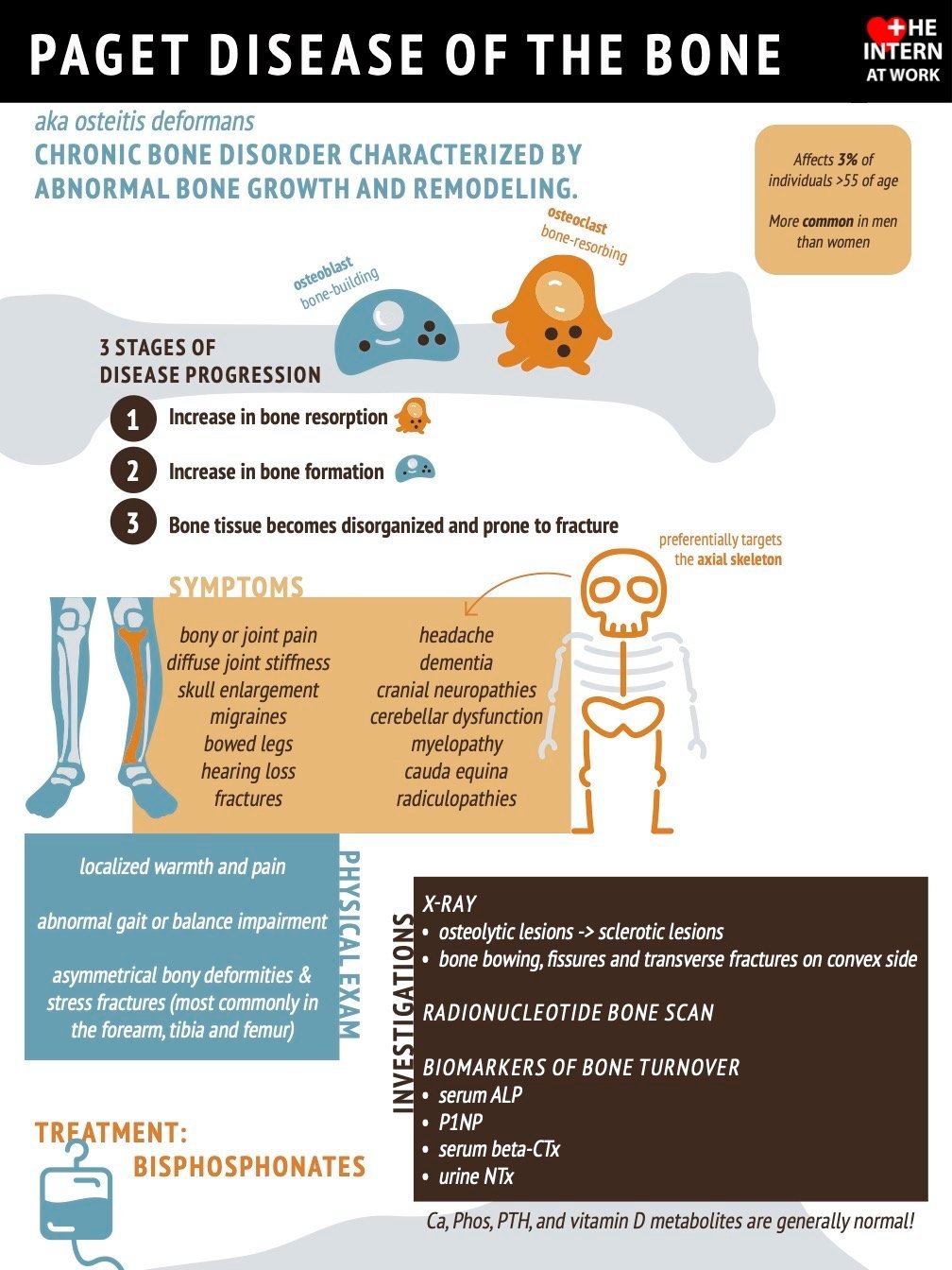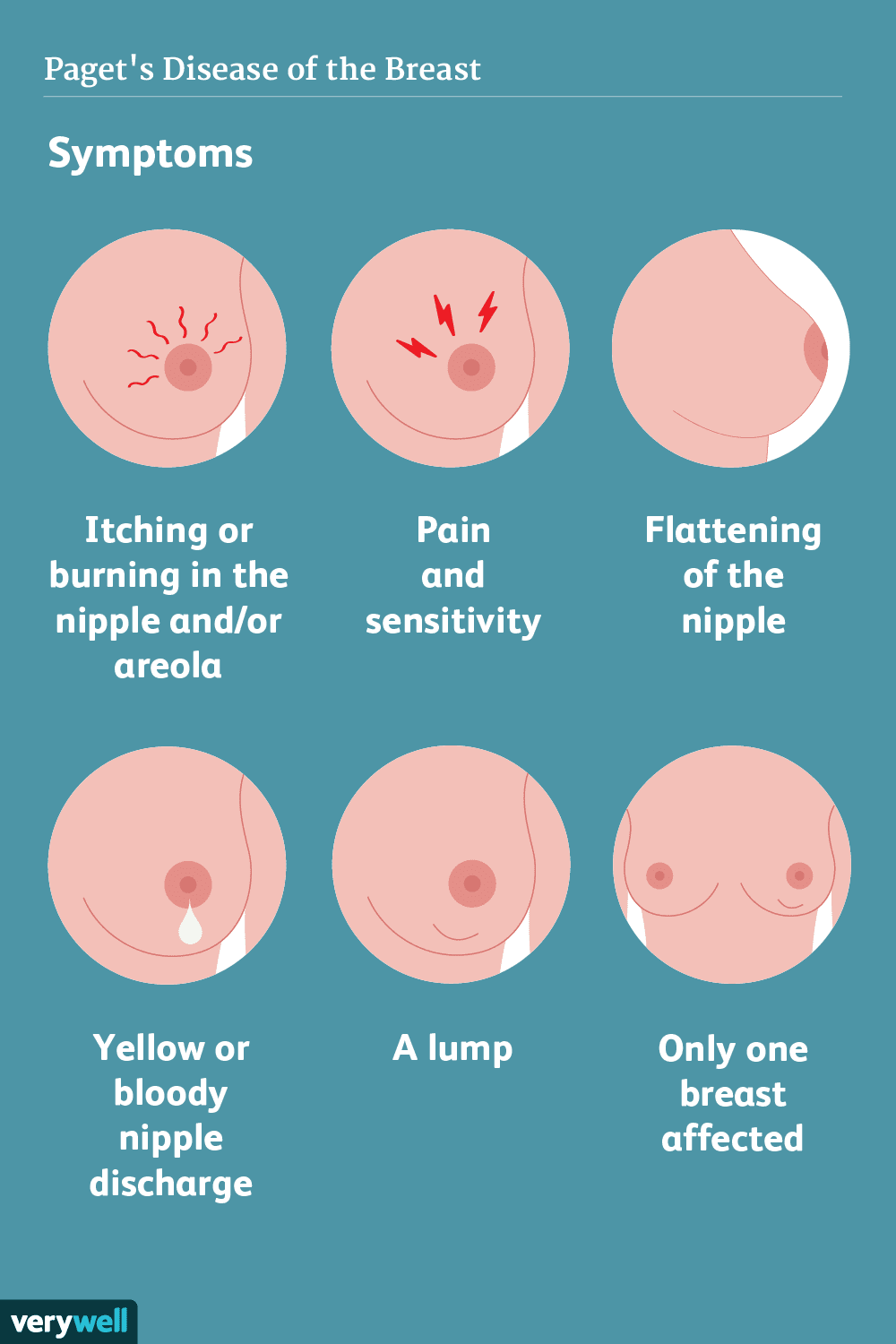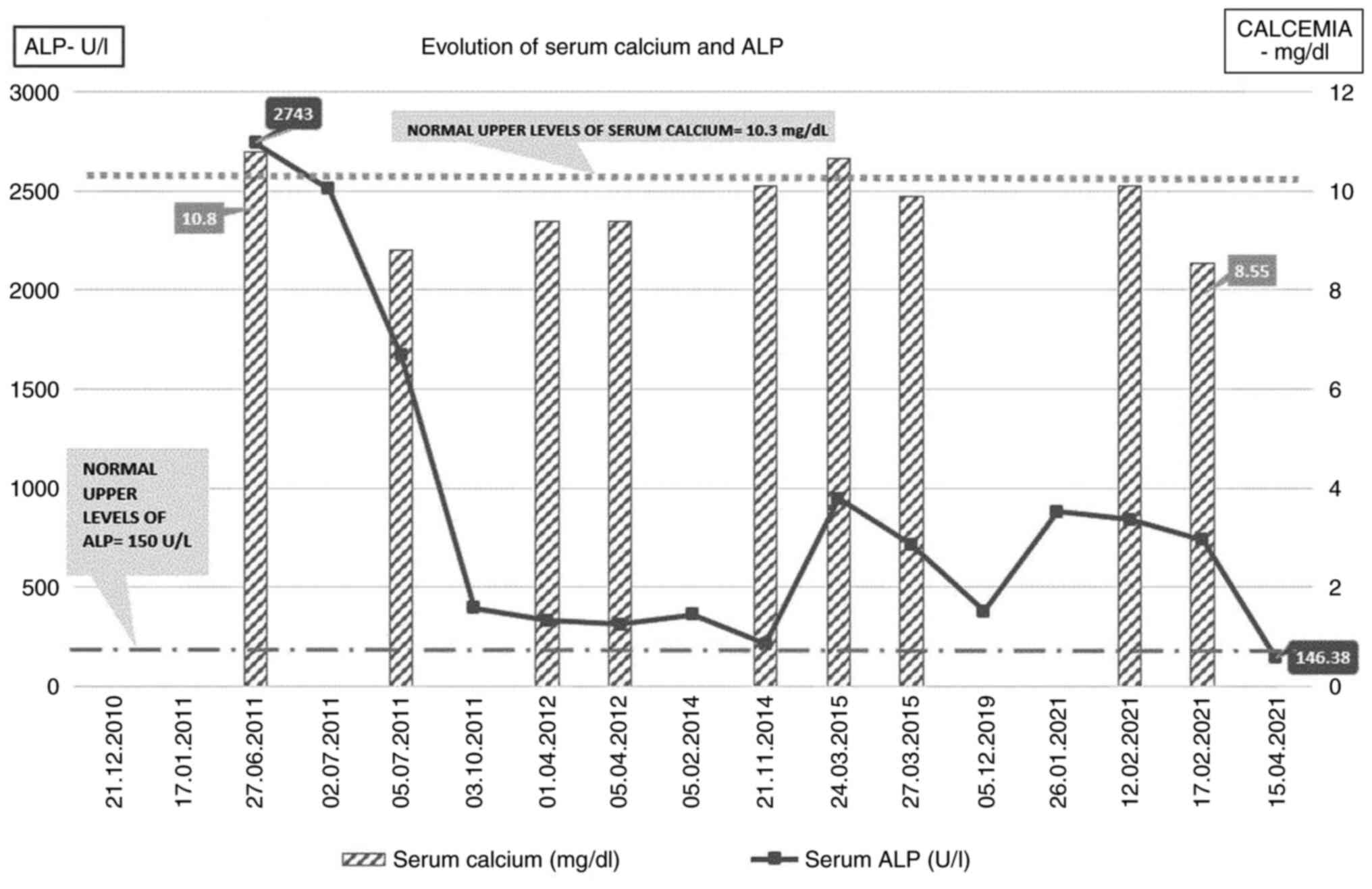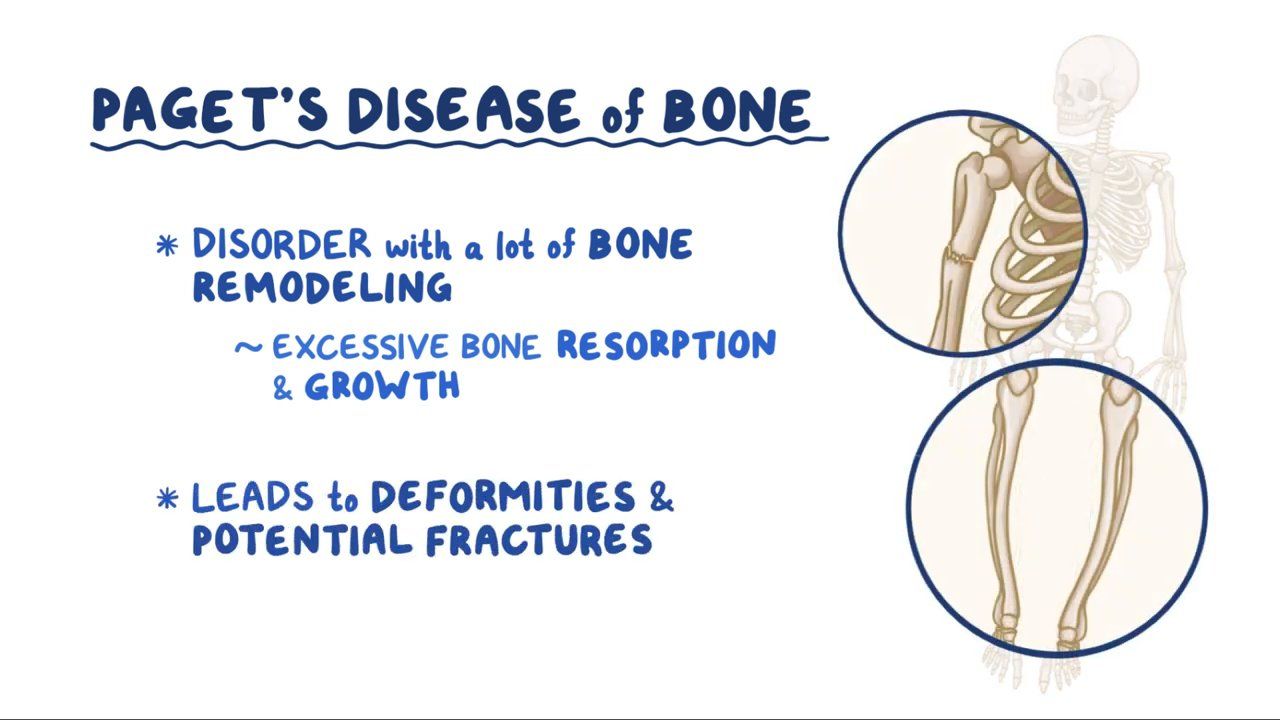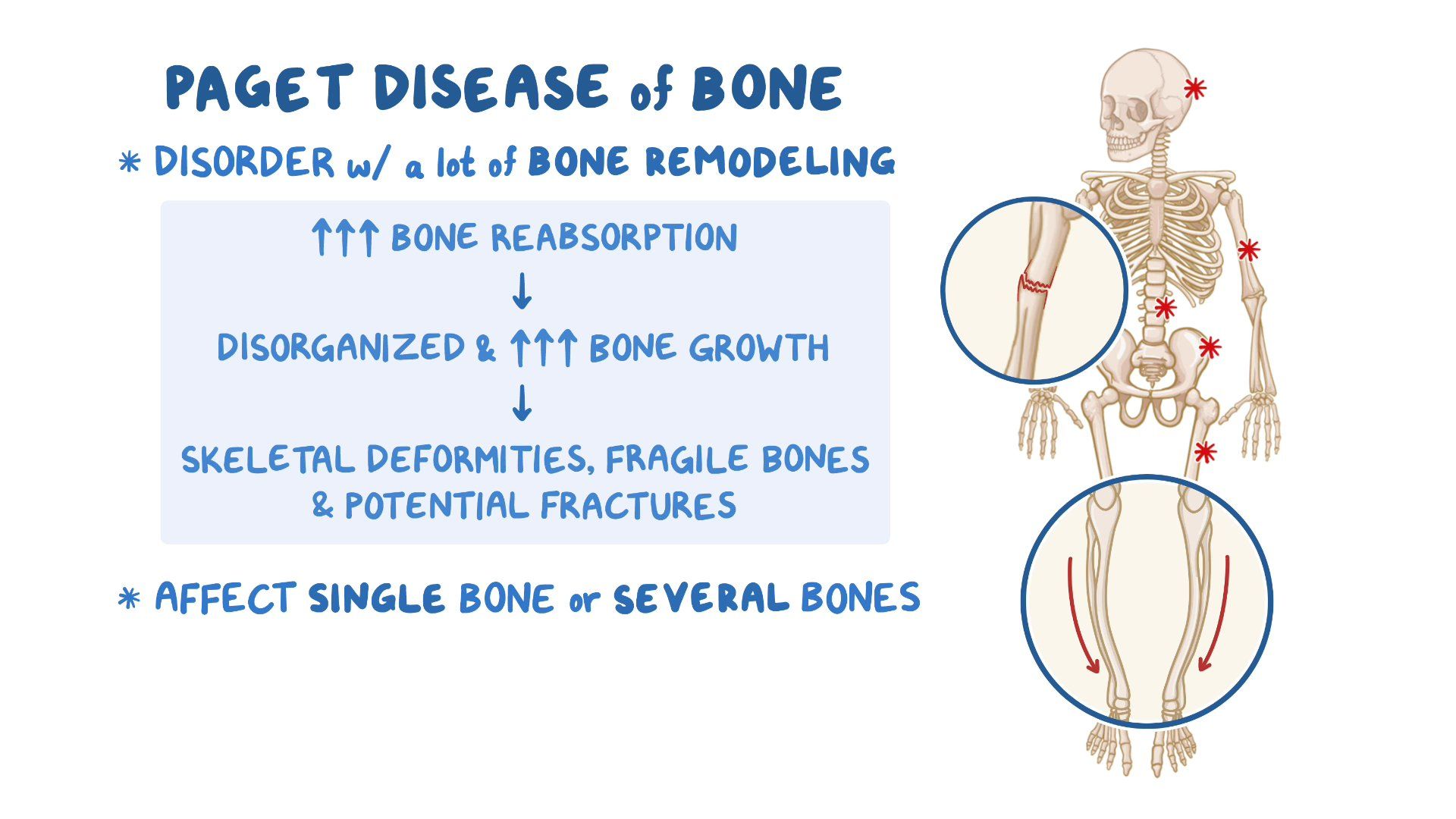
Key facts
- Paget’s disease is a chronic (long term) bone disorder where your bones become weakened and deformed.
- The exact cause of Paget’s disease is not known, but risk factors include older age, family history, certain ethnic backgrounds and some viruses.
- Paget’s disease can cause a dull pain in your bones at night or when you’re resting.
- Paget’s disease is treated with medicines called bisphosphonates.
- Paget’s disease can cause some bone, joint and neurological (nerve) complications.
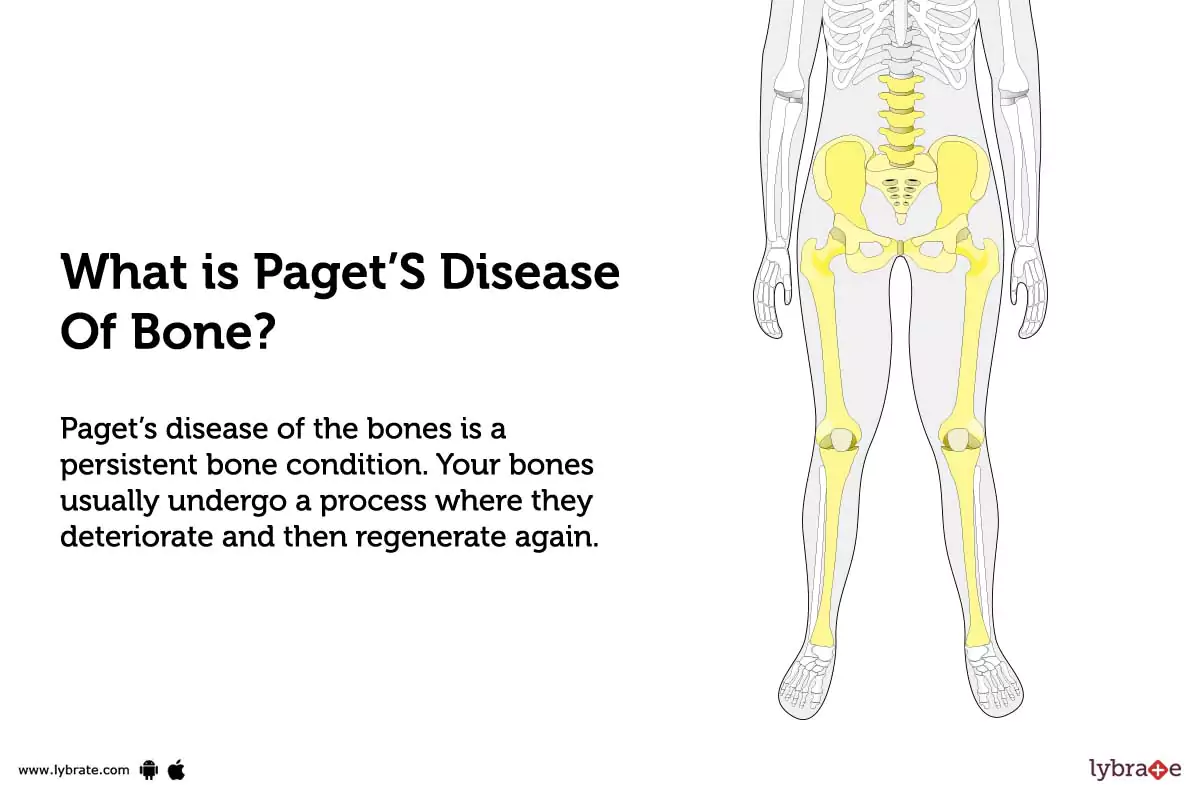
Paget’s disease of bone
What is Paget’s disease?
Paget’s disease is a chronic bone disorder where your bones become weakened and deformed. It can develop in any bone in your body, but commonly affects the bones of your:
- skull
- pelvis
- spine
- upper arm
- thighs and legs
Your bones are a living tissue. They are constantly being broken down and replaced. Paget’s disease occurs when something goes wrong with this process, and your bones break down more quickly than normal. The new bone that develops is weaker than normal healthy bone tissue.
Paget’s disease mainly affects people over 55 years old. It most commonly affects Caucasian people of British origin. In Australia, it is the most common metabolic bone disorder after osteoporosis.
What causes Paget’s disease?
The exact causes of Paget’s disease are not completely understood.
There are some known risk factors that increase your chance of having Paget’s disease:
- Genetics: You are more likely to develop Paget’s disease if a close family member has had it.
- Ethnicity: It is more common in people from England, Scotland, Central Europe, Greece and in countries settled by European migrants such as Australia and New Zealand.
- Past illness: If you previously were infected with a viral infection of measles, respiratory syncytial virus (RSV) or paramyxovirus you are at a higher risk.
- Environmental exposures: Exposure to wood fire heating during childhood can increase your risk.
- Older age: As you get older, you have a greater chance of developing Paget’s disease.
What are the symptoms of Paget’s disease?
Many people with Paget’s disease do not have any symptoms. The most common symptom people do develop is a dull pain at night or when resting.
Other symptoms may include:
- affected bones feeling warm to touch
- deformed or misshapen bones
- pain and aching in your bones
- problems with hearing, headache, vertigo (feeling of spinning or swaying) or tinnitus (ringing in the ears)
Paget’s disease can cause other symptoms related to complications which develop because of the abnormal bones.
How is Paget’s disease diagnosed?
Paget’s disease is often diagnosed when your doctor is doing tests for another reason. For example, they may diagnose it after a blood test or on an x-ray done for a different health condition.
Blood test
This is the main test used to confirm Paget’s disease if it is suspected. Levels of an enzyme called alkaline phosphatase (ALP) are checked. High levels of ALP without any other cause could mean you have Paget’s disease.
X-ray
An x-ray can show easily recognisable changes in your bones caused by Paget’s disease.
